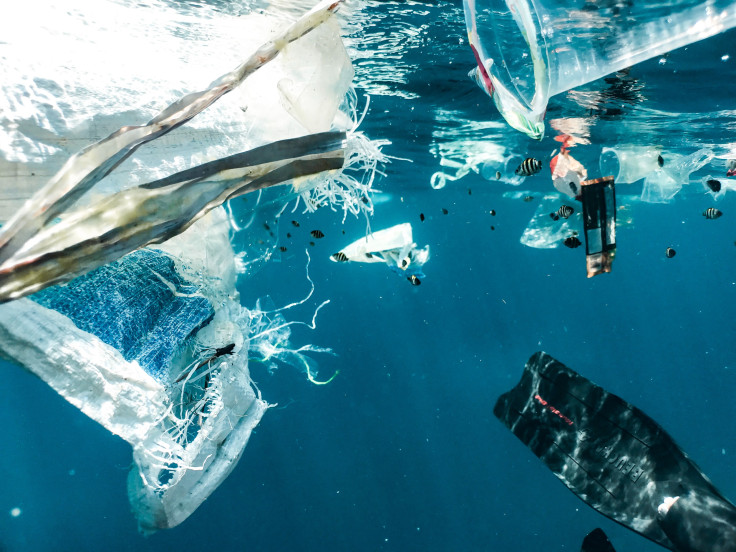A new study warns that plastic consumption could nearly double by 2050
175 countries endorse the new United Nations Plastic Pollution Treaty, as experts warn that plastic consumption is set to double in the world's biggest economies.

A new report warns that plastic consumption and waste are rising rapidly, and even if great preventive measures were implemented, they would still fail to stop the substantial rise in plastic production and use.
Currently, there is an estimated 75 to 199 million tons of plastic waste in the oceans with a further 33 billion pounds of plastic. Globally, there are 400 million tons of plastic waste produced yearly.
According to new research, plastic consumption is set to double in the world's 20 biggest economies by 2050.
The report, Peak Plastics: Bending the consumption curve from Back to Blue, an initiative of Economist Impact, and the Nippon Foundation, conveys an urgent message to stop the flood of plastic pollution.
In March 2022, representatives from 175 countries endorsed a resolution on plastic pollution at the United Nations Environment Assembly, agreeing to develop a legally binding global policy to end plastic pollution: the UN Treaty on Plastic Pollution
The first of the five negotiation sessions was held in Uruguay at the end of November, and another four will follow with the treaty set to be in place by end of 2024. The negotiators are considering a range of viable measures, with a focus on what the report refers to as "reaching peak plastic consumption", the point and volume at which global plastic consumption stops growing and begins to drop.
Perinaz Bhada Tata of the World Bank said, "The urgency to reach peak plastic waste — and also peak production of disposable plastics — is crucial for preserving our planet and safeguarding our well-being."
Chairman of the Nippon Foundation, Yohei Sasakawa says the report is a "timely call for urgent, ambitious solutions", to the plastic crisis, and recognises that global effort and coordination are needed to handle the crisis.
The study which builds on the work previously done by prominent authorities such as OECD, the World Bank, and World Wide Fund for Nature, explores three policy approaches which are being considered by the UN plastic treaty negotiators.
The key actions under negotiation, that is covering the entire life cycle of plastic, from production to disposal, are a global ban on single-use plastic items, the 'polluter pays' scheme upholding producer responsibility and a tax on new plastic production.
But even with these policies, there is a considerable possibility that the treaty will be insufficient to halt the rise in plastic consumption. With a combination of all three policies, it is possible to slow the rate at which plastic consumption will rise — a growth of 1.25 times the 2019 figure instead of 1.73 — but still nowhere near the goal of bending the consumption growth curve downward by 2050.
The study indicates that a ban on unnecessary single-use plastic products yields a greater impact than either the EPR mandate or plastics tax restraints, possibly slowing the growth in plastic consumption by 14% by 2050. New UK Government policy is also ahead in recognising the benefits of monitoring single-use plastics with recent legislative changes to the Environment Act now including charges for single-use plastics amongst other policies.
Yet, even with this ban in place, plastic consumption would be 1.48 times higher in 2050 compared with the 2019 baseline.
The producer responsibility scheme (EPR), the authors point out, will improve waste collection and increase recycling rates, averting plastic leakage into the environment. But it would barely dent the projected increase in plastic use, reducing it from 451 to 433 million tonnes.
Furthermore, the tax on "virgin" plastic, the raw material for producing plastic would only shave off 10% from the projected baseline in 2050.
Even if all three policies are implemented, plastic consumption will still increase, but at a slower pace - 1.25 times higher in 2050 compared to 2019 research says.
Failure to agree to any preventive policy will result in plastic consumption across G20 countries hitting 451 million metric tons by 2050, nearly twice at the 2019 level of 261 million tonnes.
"Negotiators of the UN plastics treaty must maintain the highest levels of ambition possible when entering the next round of negotiations, and industry needs to play a constructive, not obstructive, role in reaching a deal," said Charles Goddard, editorial director of the Economist Impact.
Even with these measures, the treaty will face pushback from producers, retailers, industry bodies and consumer groups opposed to some or all of the policies, according to the report.
Goddard says so far there has been no commitment from industry or retail brands, but only a bold suite of legally-binding policies will result in halting plastic consumption by mid-century.
© Copyright IBTimes 2024. All rights reserved.






